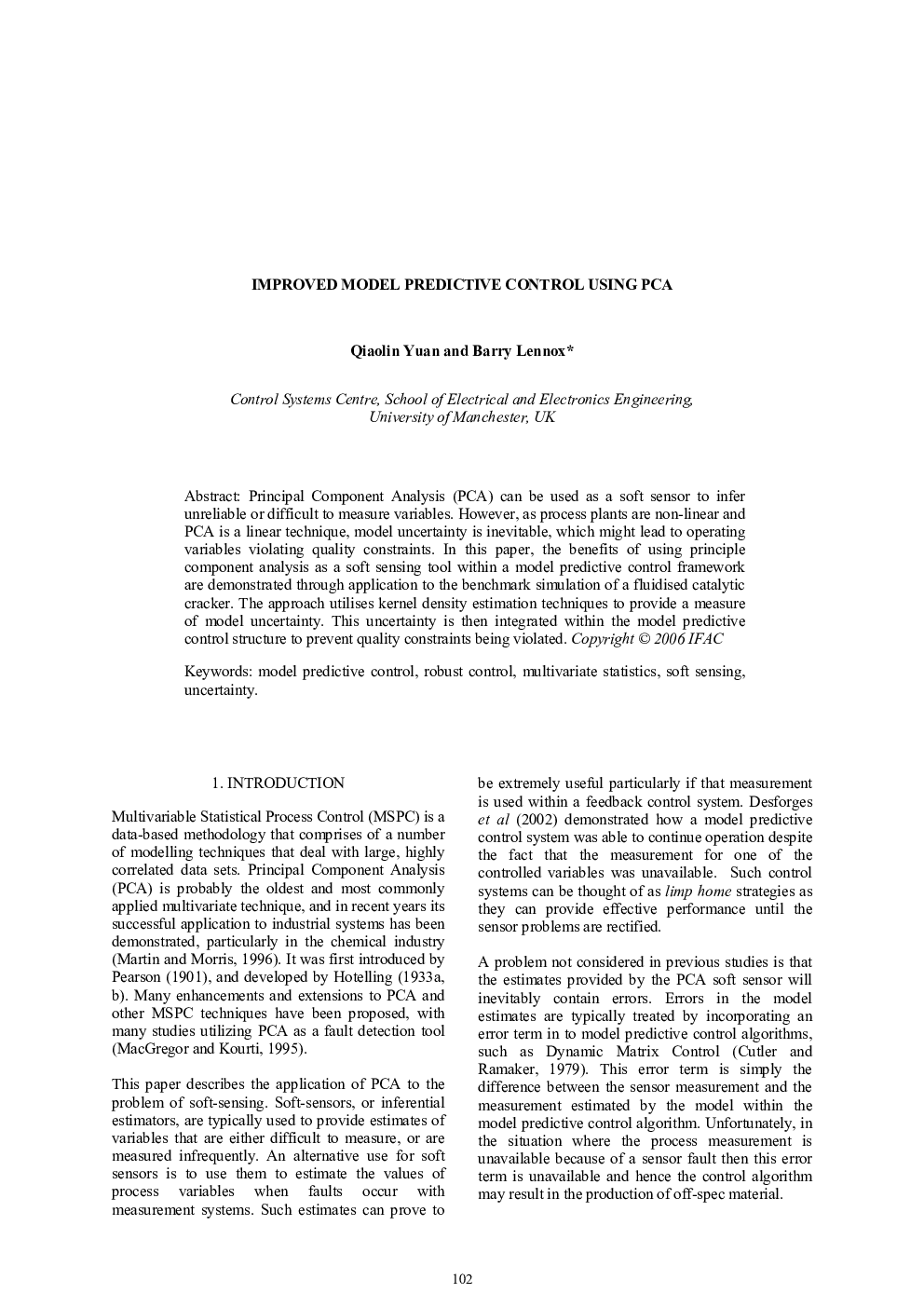| Article ID | Journal | Published Year | Pages | File Type |
|---|---|---|---|---|
| 722320 | IFAC Proceedings Volumes | 2006 | 6 Pages |
Principal Component Analysis (PCA) can be used as a soft sensor to infer unreliable or difficult to measure variables. However, as process plants are non-linear and PCA is a linear technique, model uncertainty is inevitable, which might lead to operating variables violating quality constraints. In this paper, the benefits of using principle component analysis as a soft sensing tool within a model predictive control framework are demonstrated through application to the benchmark simulation of a fluidised catalytic cracker. The approach utilises kernel density estimation techniques to provide a measure of model uncertainty. This uncertainty is then integrated within the model predictive control structure to prevent quality constraints being violated.
